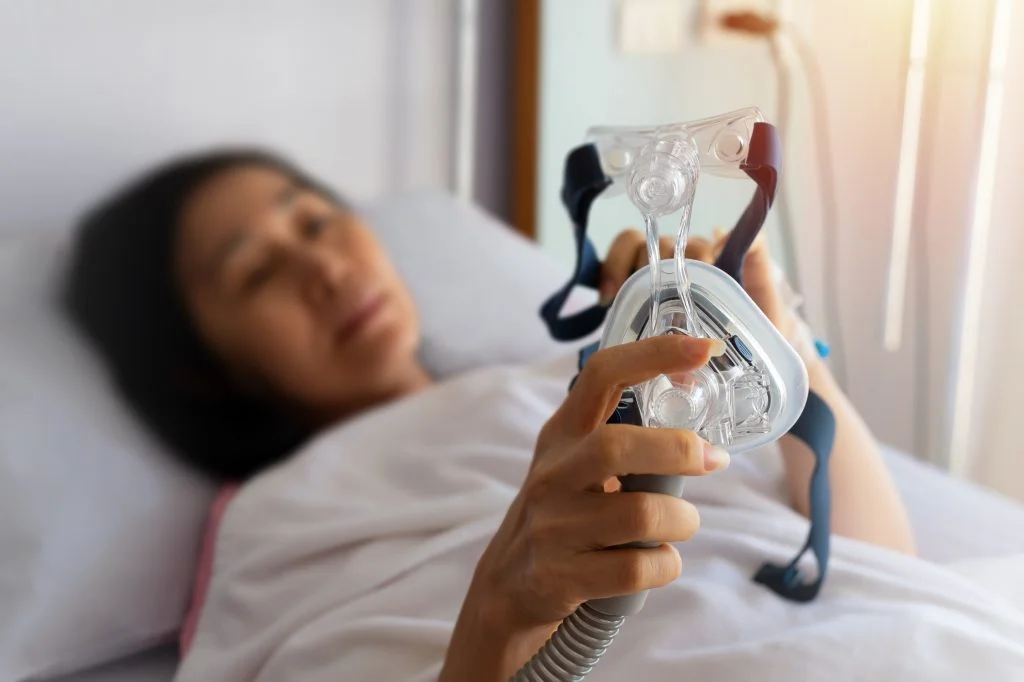
Simply the stress of having a potentially devastating disease like cancer is enough to keep you up all night. But, insomnia can also be a side effect of some cancer treatments, creating a weakened system and “feedback loop” of fatigue, anxiety, depression, and a generally heavier burden for patients, researchers share. A 2022 study found that insomnia is the second most common complication from cancer. (1)
A new study proposal from China aims to improve this cancer side effect, and to determine the potential impact of non-phramacological treatments such as exercise therapy, relaxation therapy, acupuncture, tai chi, yoga, and Mindfulness Based Stress Reduction (MBSR). (2) They share evidence that cancer patients are increasingly seeking these types of natural treatments to relieve insomnia.
“There is no definitive evidence to compare the efficacy of these non-pharmacological treatments… and the quality of relevant literature is variable,” researchers shared, proposing conducting a “comprehensive quantitative analysis” to investigate a range of treatments. They add that they won’t be studying a specific cancer type, but looking across multiple types of cancer patients in hopes that the findings will more generally apply to more people.
This potential study is notable because other studies, researchers share, use long referenced tools, the Pittsburgh Sleep Quality Index (PSQI) and Insomnia Severity Index (ISI), as outcome indicators. But, as they shared, “insomnia is not an isolated symptom.” So, this comprehensive look at non-drug related treatments could give cancer patients more options.
The National Cancer Institute shares a variety of reasons cancer patients might struggle with insomnia, and also abnormal sleep and wake cycles, including:
- “Physical changes caused by cancer or surgery.
- Side effects of drugs or other treatments.
- Being in the hospital.
- Stress about having cancer.
- Health problems not related to cancer.”
This proposal would add to a body of research looking at various aspects of cancer-related insomnia and potential solutions. A 2021 study found that cancer-related insomnia (CRI) affects between 52 percent and 67 percent of cancer complications. (3) This is 2 to 3 times higher when compared to those without cancer. A 2021 study found that sleep deprivation can amplify the physical suffering of cancer patients. (4) Another 2021 study found that breast cancer patients benefitted from non-pharmacological interventions. (5)
Aside from and often including cancer patients, sleep doctors know a few things for sure. First, there’s a strong link between exercise and sleep. They have even looked at the best exercises to do right before bed. In addition, nearly everyone can benefit from a look at sleep hygiene practices, though it won’t solve all the problems for people suffering from cancer symptoms and related insomnia. But, these practices are worth a try:
- Observe a consistent bedtime and wake time, even on weekends.
- Try to decrease stress and relax in the evening, avoid stimulating activities, work, and rigorous exercise.
- Avoid caffeine, alcohol, and spicy foods before bed
- Sleep in a dark, cool, quiet environment with minimal distractions
And, if you find the mental load of dealing with cancer or another serious illness feels like too much to handle, reach out to the NCI’s resource page of reliable cancer information services for a variety of help from coping resources to treatment options.
Sources
1. Jialing Zhang, Zhinan Zhang, Shengtao Huang, Xiaoke Qiu, Lixing Lao, Yong Huang, Zhang-Jin Zhang, “Acupuncture for cancer-related insomnia: A systematic review and meta-analysis,”
Phytomedicine, Volume 102, 2022, 154160, ISSN 0944-7113, https://doi.org/10.1016/j.phymed.2022.154160.
2. Qiang Chen; Mengfan Kan; Xiaoyu Jiang; Hongyan Bi; Linlin Zhang; “Efficacy and safety of non-pharmacological interventions for cancer-related insomnia: a study protocol for a systematic review and network meta-analysis,” BMJ Open; https://bmjopen.bmj.com/content/bmjopen/14/11/e086035.full.pdf; September 30, 2024.
3. Zhu, Gh., Li, J., Li, J. et al. The characteristics and related factors of insomnia among postoperative patients with gastric cancer: a cross-sectional survey. Support Care Cancer 29, 7315–7322 (2021). https://doi.org/10.1007/s00520-021-06295-6
4. Jee-Hyun Yoon; Eun Hye Kim; Su Bin Park; Jee Young Lee; Seong Woo Yoon; “Traditional Herbal Medicine for Insomnia in Patients With Cancer: A Systematic Review and Meta-Analysis,” Frontiers; https://www.frontiersin.org/journals/pharmacology/articles/10.3389/fphar.2021.753140/full; October 27, 2021.
5. Oei, S.L., Thronicke, A., Matthes, H. et al. Assessment of integrative non-pharmacological interventions and quality of life in breast cancer patients using real-world data. Breast Cancer 28, 608–617 (2021). https://doi.org/10.1007/s12282-020-01193-x

























